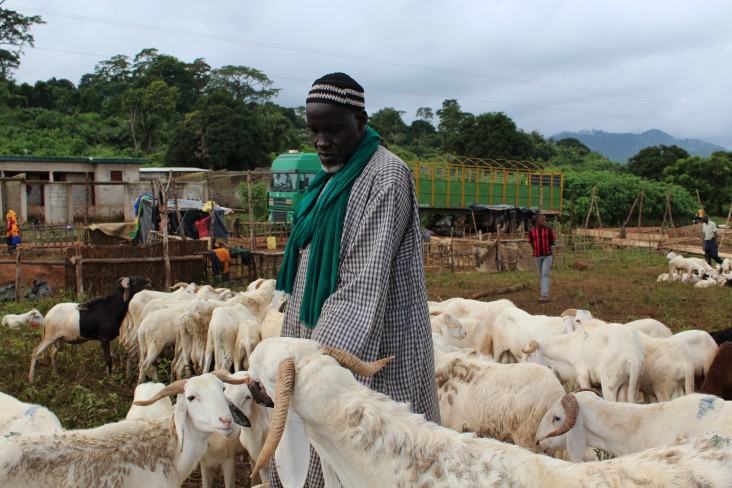
West Africa Trade & Investment Hub
For Immediate Release
From September 1-12, Operation Tabaski 2016 helped move more than 80,000 animals from Mali and Burkina to secondary markets in Cote d’Ivoire, generating total sales estimated at $10.3 million.
To leverage the high demand of Ivorian livestock markets during the Muslim festival of Eid-ul-Adha or Tabaski, the Trade Hub collaborated with national and regional livestock associations to identify 16 new sales sites in the interior of Cote d’Ivoire. Partners included the Confédération des Fédérations Nationales de la chaine de valeurs Bétail/Viande de l’Afrique de l’Ouest (COFENABVI-AO), as well as participating federations: FENACOFBVI from Cote d’Ivoire, FEBEVIB from Burkina Faso, and FEBEVIM from Mali.
National federations directed a massive awareness campaign to traders and exporters, which boosted the flow of trucks from Burkina Faso and Mali to deficit market sites in Cote d’Ivoire. In Divo in the country’s south, the supply of animals overflowed capacity and was redirected to the Ivorian capital of Abidjan.
Due to additional sales locations, livestock sellers said they were able to sell their animals much faster this year. “We used to sell our sheep at the livestock market of Port-Bouet in Abidjan, but we were not able to make much profit. This year, the livestock Federation of Mali advised us to try internal markets such as Daloa, Gagnoa and Soubre, and we did. In Daloa for example, transportation was facilitated and we travelled extensively between Mali and Cote d’Ivoire five times to bring lots of animals. I am almost running out of sheep and I am planning to go back home to bring down more animals,” said Dakite from Mali.
At this second Operation Tabaski organized by the Trade Hub, the number of animals exported to Côte d’Ivoire increased between 2015 and 2016. Sellers generally did not get higher prices, because this year’s holiday coincided with the start of school and accompanying fees. However, preparatory discussions among participating stakeholders, potential buyers, and local authorities greatly helped evaluate market needs, and facilitated logistics and sanitary measures.
Local authorities strongly supported new infrastructure for Operation Tabaski. In Man, Côte d’Ivoire, the prefecture, city authority and regional directorate for animal production combined efforts to establish a quarantine area for the traders to park the animals.
“Every day, the Regional Directorate of Animal and Fishery Resources is ensuring the good health of the livestock upon their arrival at the site,” said Mr. Dion Pascal, head of the department of Animal Health and Public and Animal Hygiene at the regional office of the Ministry of Animal and Fishery Resources. “Last year, animals were scattered in the city, resulting in wandering and stealing of animals. This year, the livestock is parked in one place, facilitating sales.”
“This quarantine is a new experience,” said Mr. Ouattara Tiemoko, special advisor to the mayor of Man on livestock issues. “We will think of ways to improve the site, so breeders will benefit from a space to park.”







Comment
Make a general inquiry or suggest an improvement.